Innovation is about failure. It's why innovators must be perseverant.
But what differentiates "average” innovators from "great” innovators?
Those who add gradual value vs those who change how we live and see the world.
The contrast lies in how they "fuel" their perseverance.
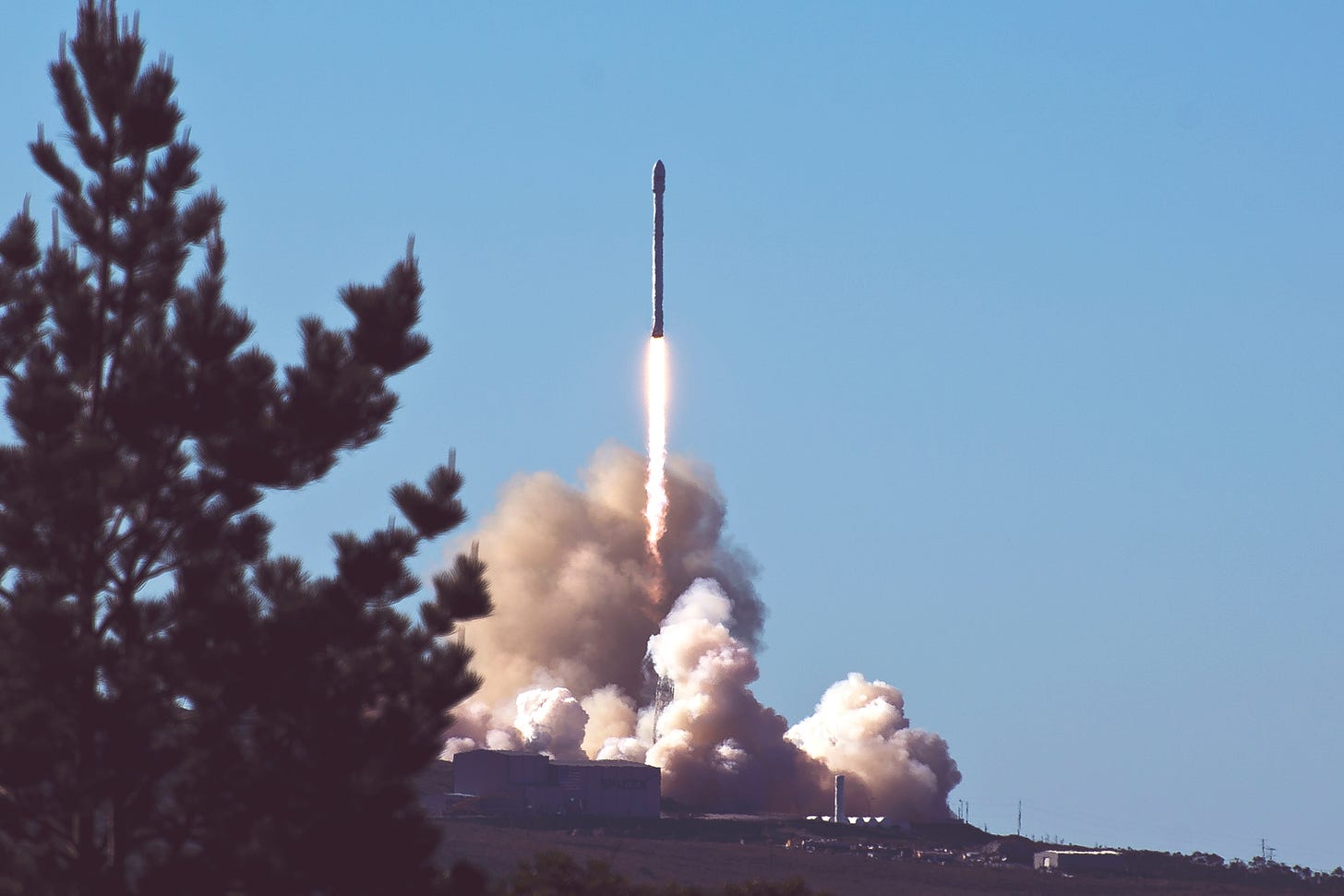
Photo by Tim Mossholder on Unsplash
Many innovators focus on passion to "fuel" their perseverance.
When they discover a "big idea" they burn with a desire to bring it to life and see it in the world.
They fall in love with their project and the dream of it being successful. So they push through the uncertainty and failure to make their dream come true.
But passion can also fuel our ego. It can blind us and keep us from generating real value. Furthermore, passion can fade as our egos get bruised with each "failure" we experience.
For example, the Segway.
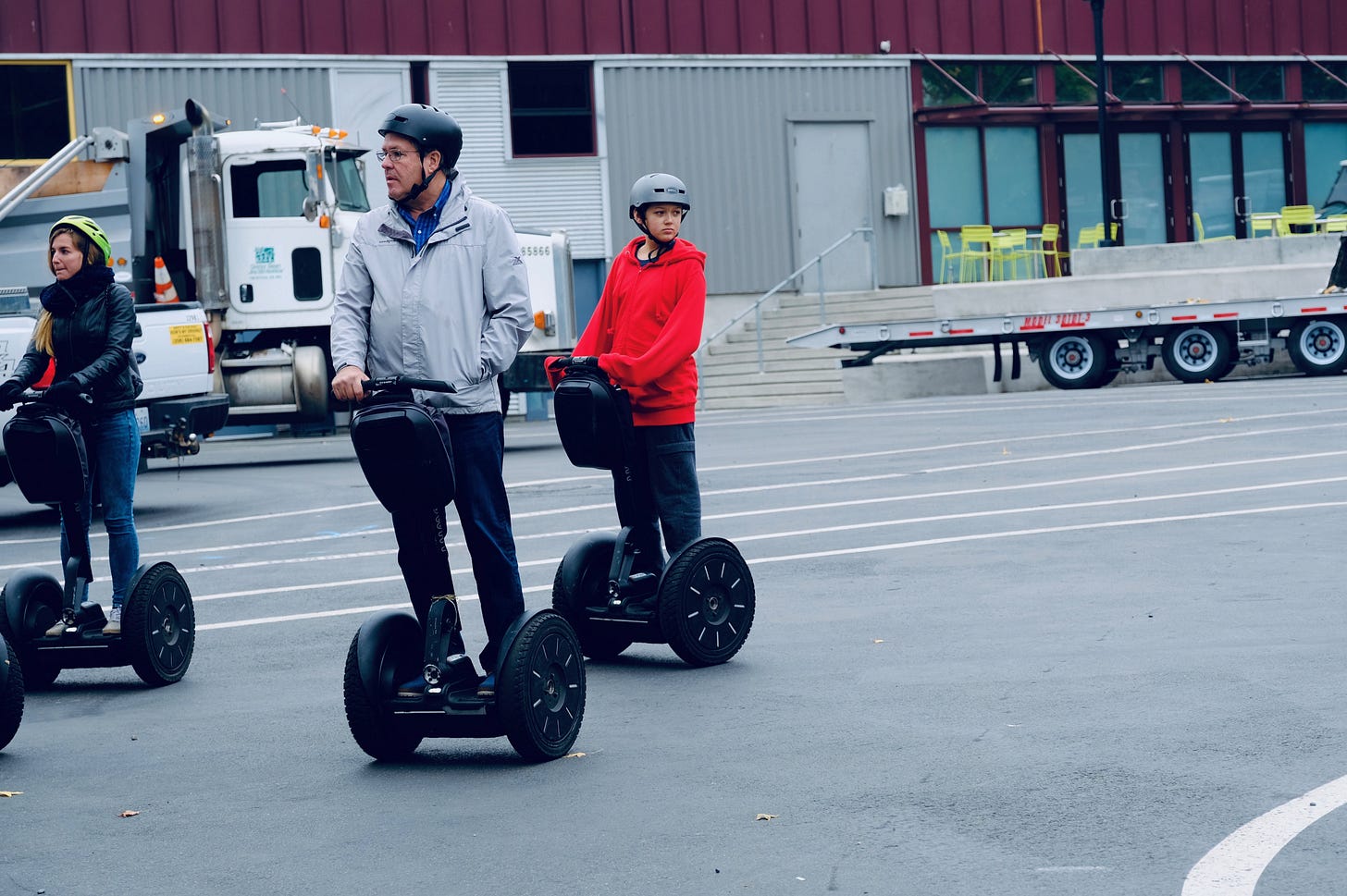
Photo by Johny vino on Unsplash
The creators and investors of the Segway were confident that their idea would transform the world.
They focused on evangelizing their idea until the expectations were too high.
Their passion prevented them from realizing that they built a product, not a solution.
People did not need or want a "middle ground" between a car and walking that was way more expensive and bulkier than the bike.
Today you could say they changed the lives of some tourists and mall cops at the most.
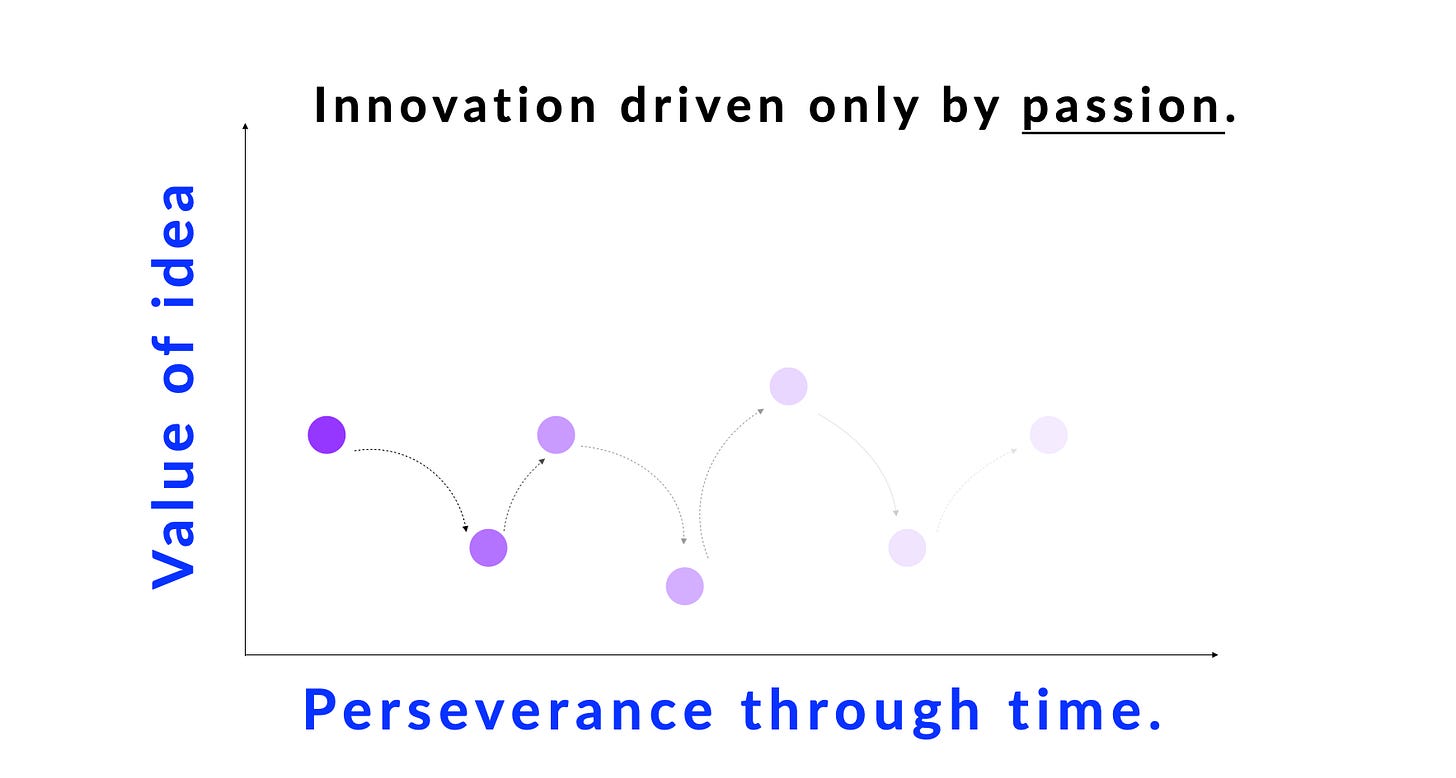
Great innovators fuel their perseverance with passion and curiosity.
Yes, they have passion. But what drives them is something much more profound.
Their curiosity gives them a more significant purpose, to understand why things fail and seek solutions that can add more value.
They see failure as something you examine, not something you just "overcome."
Continuously questioning themselves on why ideas work or fail allows them to see opportunity when others cannot.
For example, Facebook’s founder Mark Zuckerberg and venture capitalists Peter Thiel.
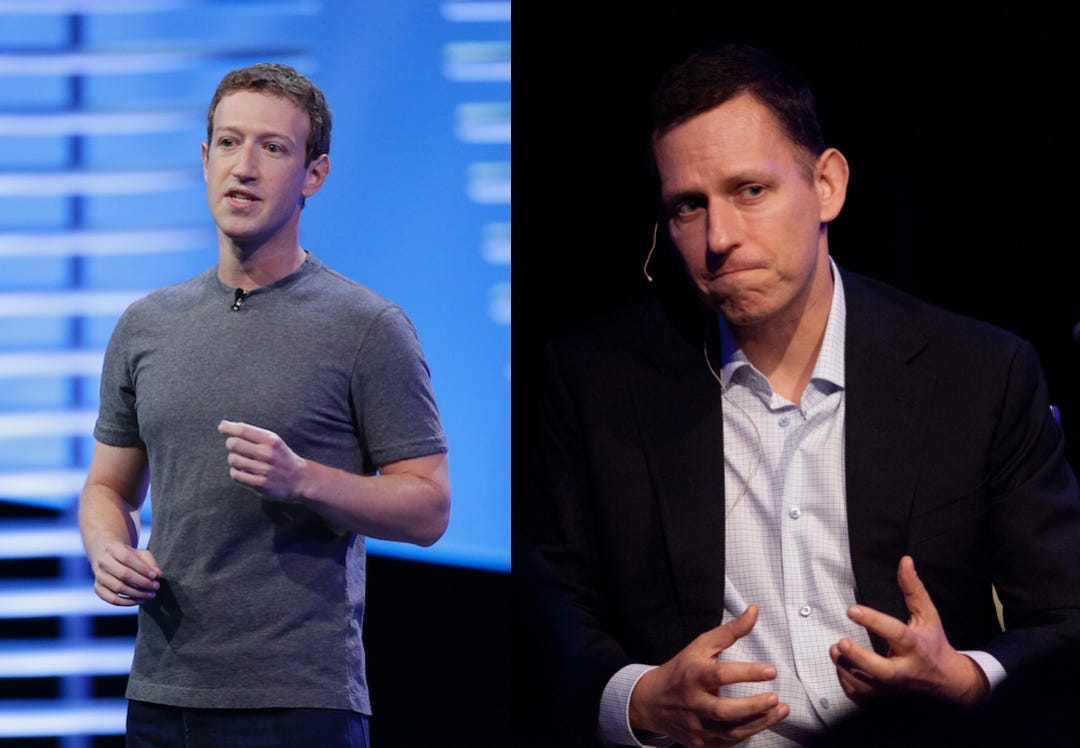
Photo: Associated Press
Before Facebook launched in 2014, many social networks failed to be successful: Friendster, MySpace, Hi5, Second Life, etc.
When investors saw users jumping from one social network to the next, they passed on investing in Facebook.
They wrongfully concluded that social networks would never gain volume or long-term traction.

Friendster, the social network people were leaving for MySpace at the time Facebook was founded. Source: Blogspot
But when Peter Thiel saw Facebook's pitch, he paused and wondered why social networks were failing and what would make Facebook different.
He reached out to people at Friendster and learned that users did not leave because they did not like the product, but because the site would crash. Actually, users stayed a long time within site despite the crashes.
Thiel saw the potential his investment would have on helping Facebook scale to offer a better web experience without the web crashes.
He wrote Zuckerberg a check for $500,000. He sold most of his stake in Facebook 8 years later for nearly a billion dollars.
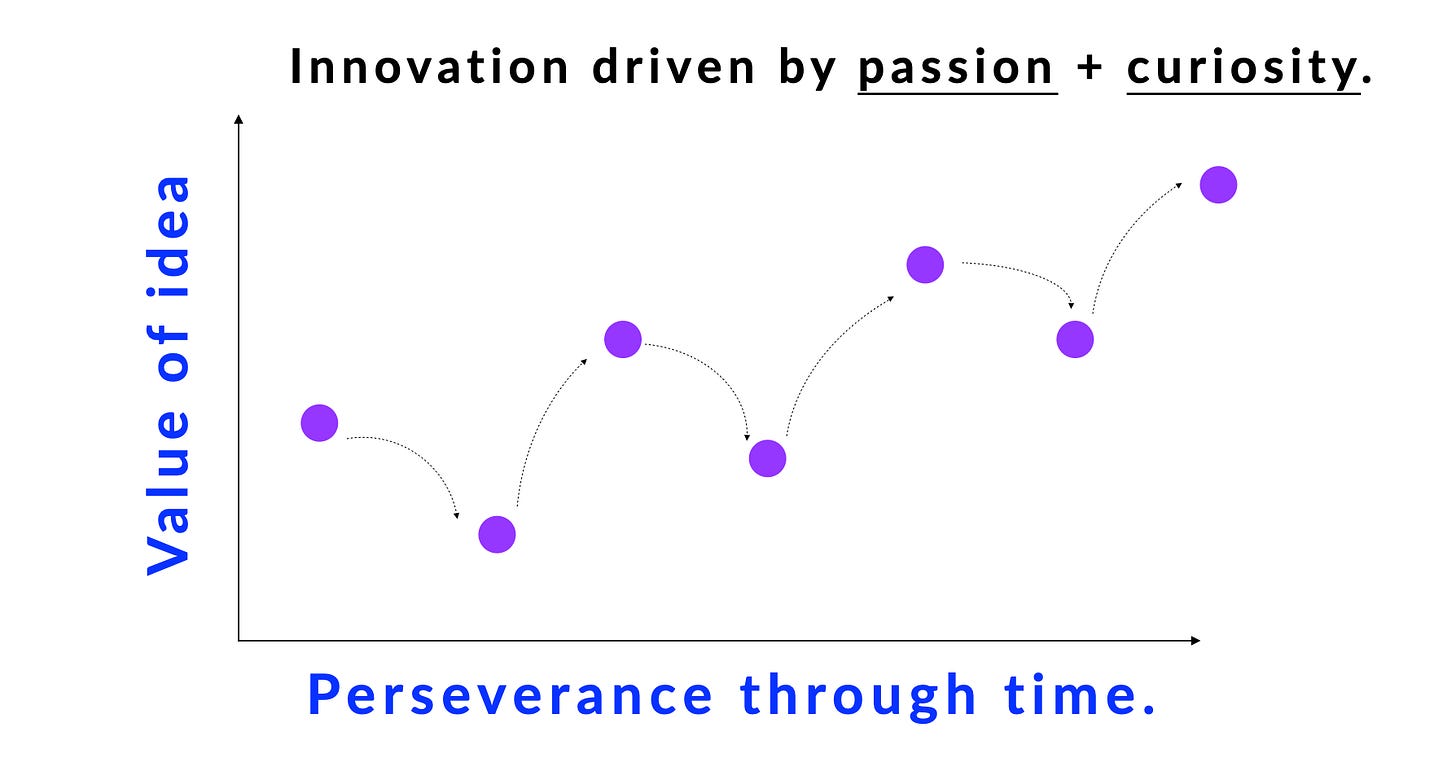
The Takeaway:
Passion is essential, but it's not everything.
Our culture is obsessed with passion, "follow your passion," "live with passion"... but in the end, this philosophy can be selfish and fall short when things get hard. It can also result in ideas that fail because they do not add real value to others.
Passion + Curiosity = Purpose
In addition to passion, seek to understand what others need and why your idea failed or worked. Ask why again and again. It will bring focus on how to be more useful and how to serve others better.
As our lives change, listen and observe to the needs and desires of those who surround you.
If you are curious and ask the right questions, you will find opportunities.
Let me know what you think. Hit reply.
Did you enjoy this Takeaway? Share it with a friend!
If a friend shared this post with you, you can subscribe to future Takeaways here.
Catch up or revisit previous Takeaways here.
I hope you are well.
María Albert



